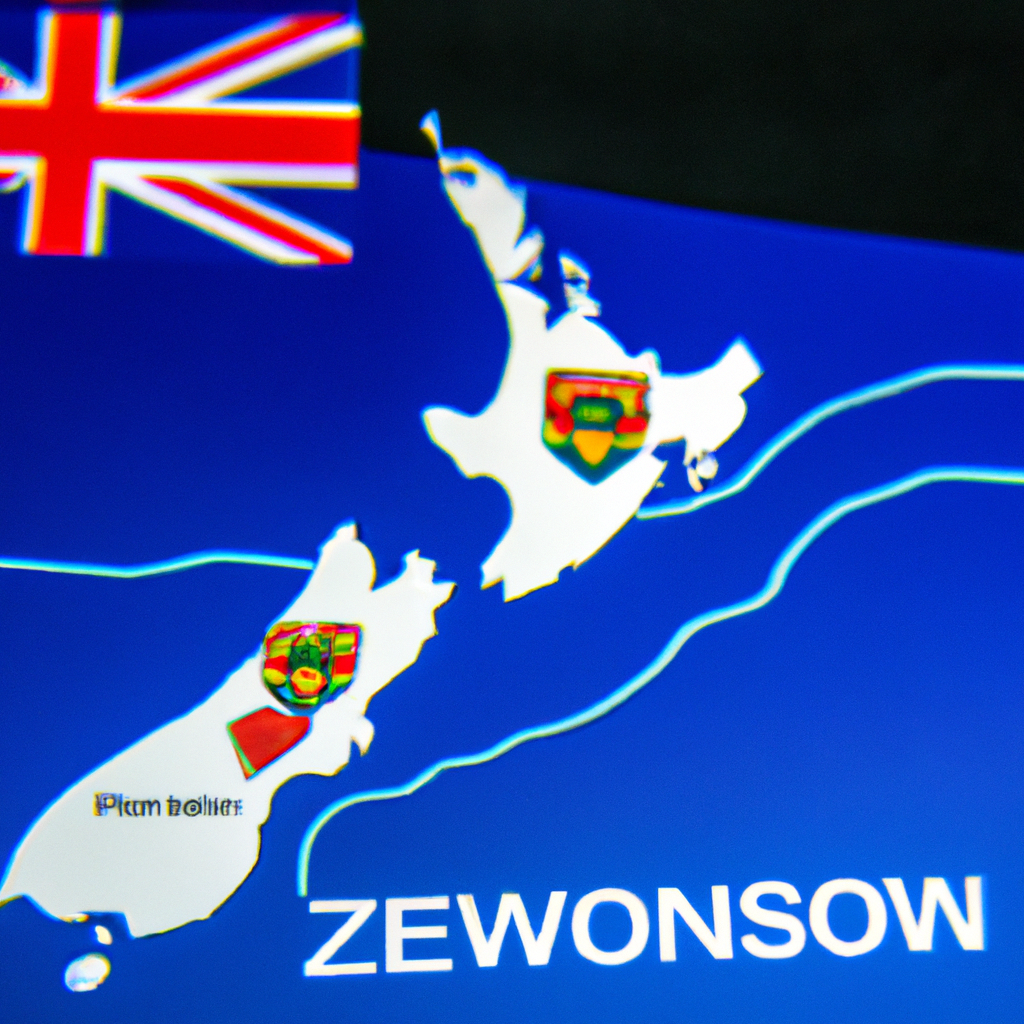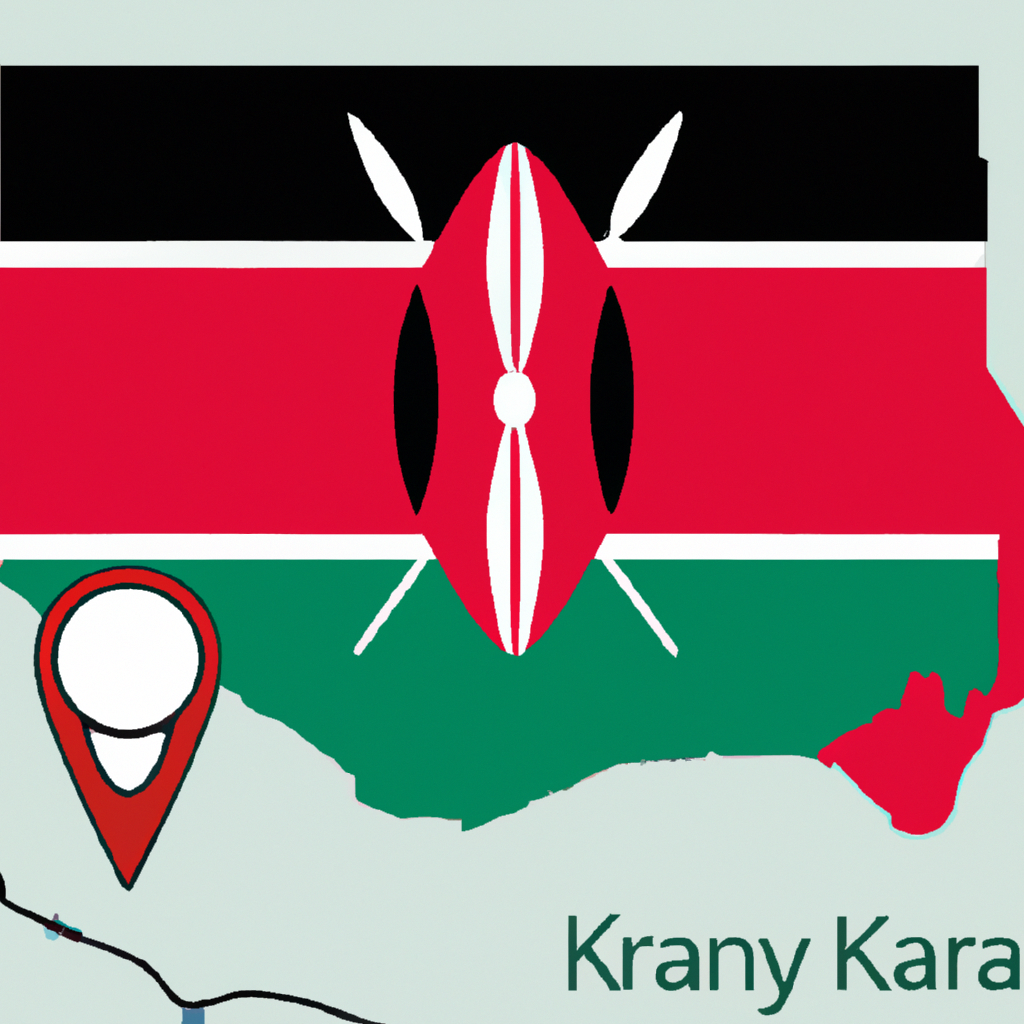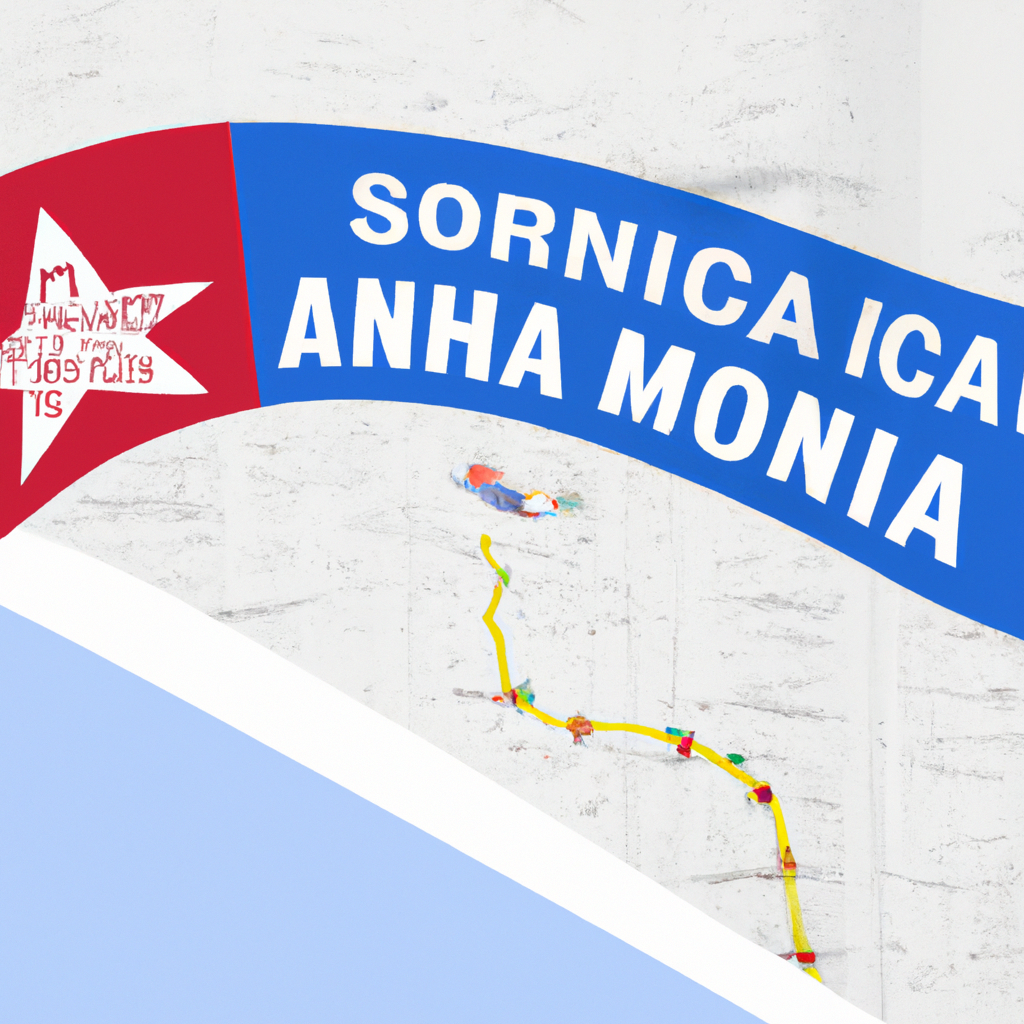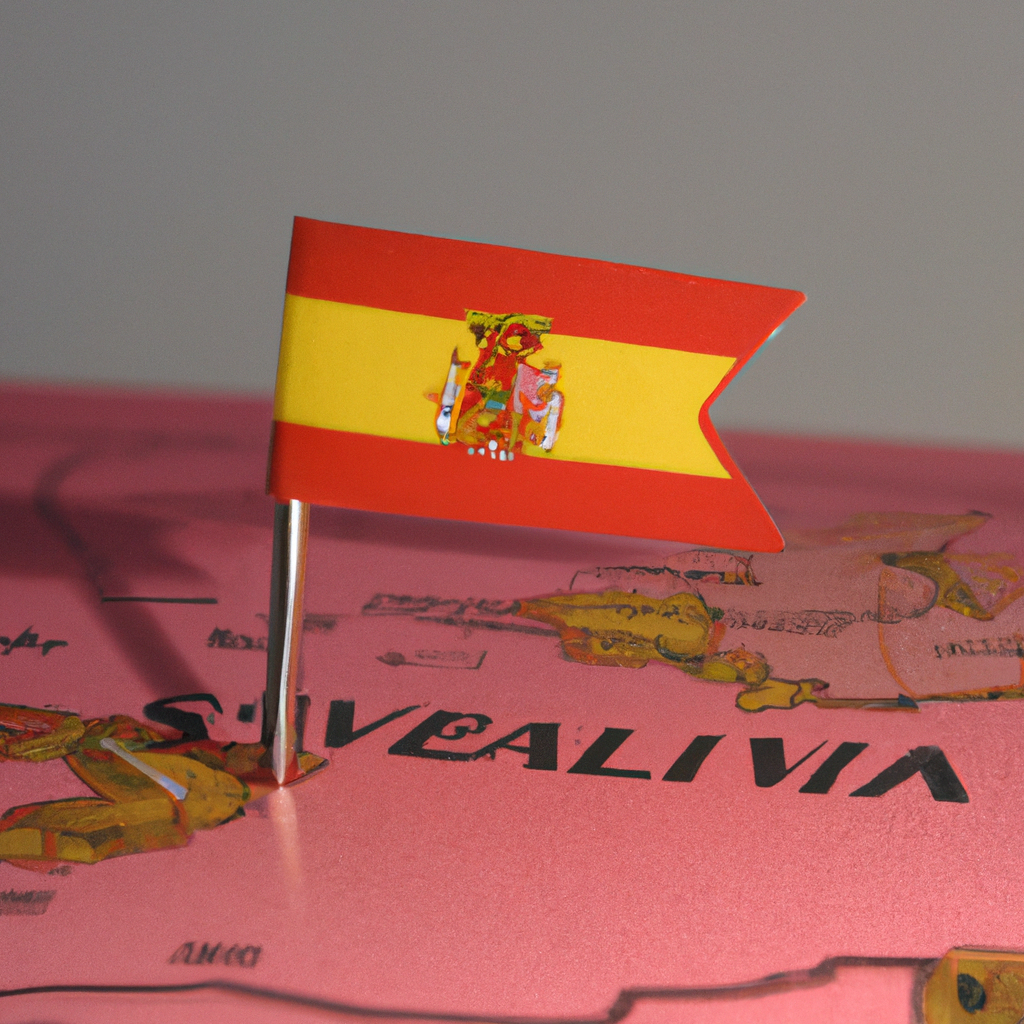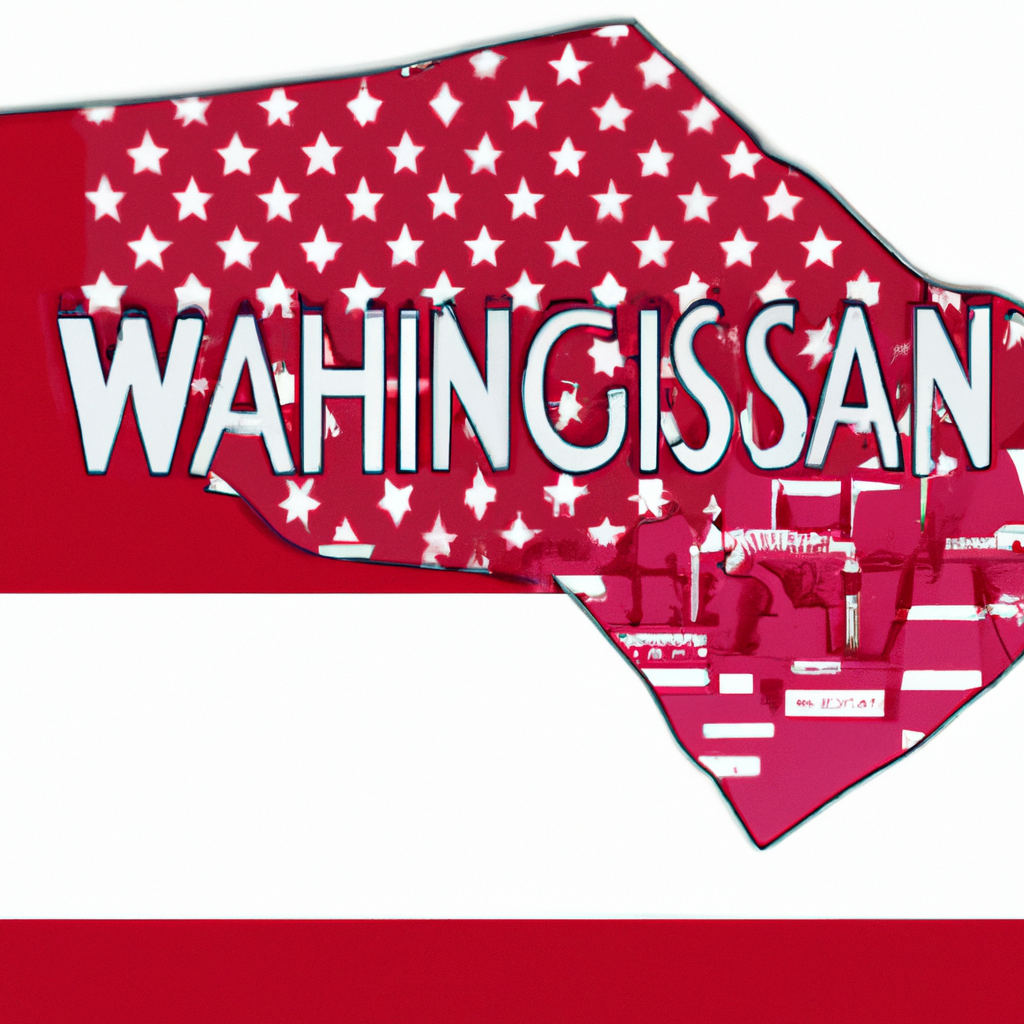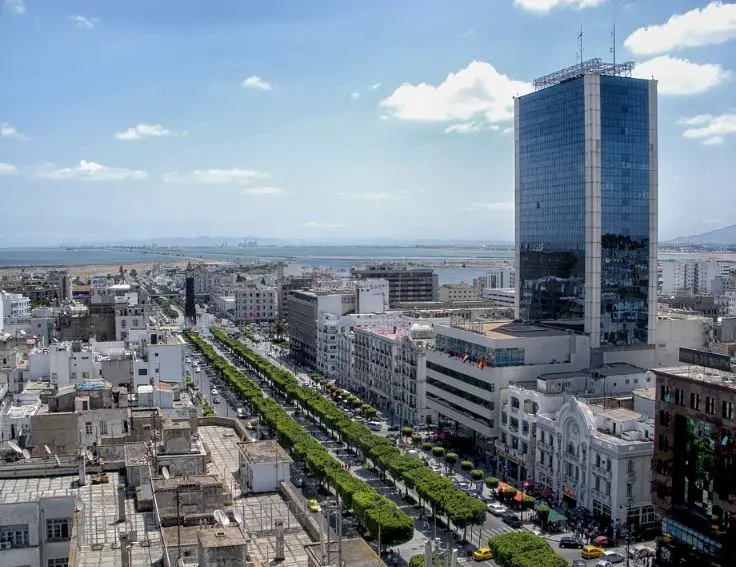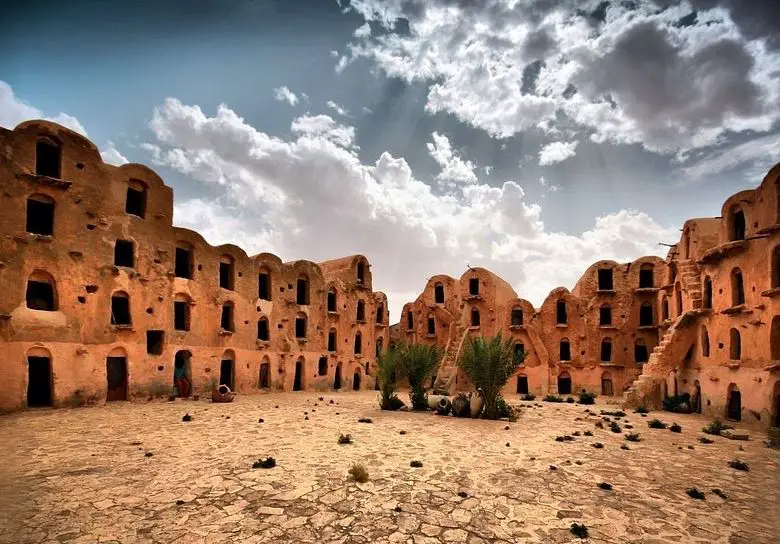Tunis, Tunisia: Interesting Facts,History, Things to do,Why to Visit
Post ByAdequate Travel
Tunisia is a small north African nation that has a lot to offer. It is a great destination for travelers of all ages - a place to explore modern culture, ancient ruins, beaches, savanna and deserts. From the vibrant capital city of Tunis to the Saharan landscape, Tunisia has something for everyone. Here you can explore the interesting facts, history and different things to do while in the country. From Roman ruins, a fascinating Islamic culture to beautiful beaches, Tunisia is definitely a must-visit destination. Additionally, there is something unique about the Tunisian people and the amazing food that is served throughout the country. Whether you're looking for adventure, sightseeing or relaxation, Tunisia has something to offer everyone. So make sure to visit this amazing country and find out why it is an ideal destination.
Tunisia is a small country located in North Africa. It has a rich history, with influences from the Phoenicians, Romans, Arab Muslims, Ottomans, and French. Tunisia gained independence from France in 1956 and became a republic. The country has a diverse culture, with a mix of Arab, Berber, and European influences.Tunisia has a Mediterranean coastline, beautiful sandy beaches, and a warm climate, making it a popular tourist destination. The economy is based on agriculture, manufacturing, and services, with tourism being an important source of revenue.Since its revolution in 2011, Tunisia has been transitioning to a democratic government and has made significant progress in improving human rights and freedom of speech. However, the country also faces various challenges, including high unemployment rates, regional inequalities, and security concerns due to the presence of extremist groups.Despite these challenges, Tunisia remains a relatively stable and peaceful country compared to some of its neighbors in the region. It has a reputation for being a tolerant and moderate Muslim country, with a strong commitment to education and women's rights.Step back in time as you visit the historical sites in tunisia, where the past comes alive.
Interesting facts
Geographical Location
Tunisia is located in North Africa along the Mediterranean Sea. It is bordered by Algeria to the west and Libya to the southeast. The country has a diverse landscape that includes coastal plains, the Atlas Mountains in the north, and the Sahara Desert in the south.
Historical Significance
Tunisia has a rich history dating back to ancient times. It was once a part of the Roman Empire and was known as the breadbasket of Rome due to its fertile land. The country has also been influenced by various civilizations, including the Phoenicians, Carthaginians, Vandals, Byzantines, Arabs, Ottoman Turks, and French. One of the most significant events in Tunisia's history was the Tunisian Revolution in 2011, which sparked the Arab Spring.
Cultural Blend
Tunisia has a unique cultural blend influenced by its history and geographical location. It is considered to be the gateway between Africa and the Arab world, resulting in a mixture of Arab, Berber, and African traditions. The country is known for its vibrant arts scene, traditional music, and diverse cuisine. Examples of traditional Tunisian dishes include couscous, brik (a fried pastry filled with egg and tuna), and various grilled meat dishes.
Moderate Islamic Society
Tunisia is predominantly a Muslim country, with Islam being the state religion. However, the country has a long tradition of religious tolerance and is known for its moderate and progressive interpretation of Islam. Tunisians are generally accepting of different religions and cultures, and the country has a strong tradition of secularism. For example, Tunisia was the first country in the Arab world to grant women the right to vote.
Tourist Attractions
Tunisia is a popular tourist destination due to its rich historical sites, beautiful beaches, and diverse landscapes. Some of the notable attractions include:
- The ancient ruins of Carthage, a UNESCO World Heritage site
- The Medina of Tunis, a historic quarter with narrow streets and traditional architecture
- The Sahara Desert, where visitors can experience camel trekking and explore unique landscapes
- The coastal city of Sidi Bou Said, known for its white-washed buildings and blue accents
- The island of Djerba, famous for its sandy beaches and unique blend of cultures
These are just a few examples of the many fascinating aspects of Tunisia's history, culture, and attractions that make it an interesting and diverse country to explore.
From museums to parks,tunisia tourist attractions offer something for everyone, making it a versatile destination for all type of tourists.History of Tunisia
Tunisia, officially known as the Republic of Tunisia, is a country located in North Africa. It has a rich and diverse history that dates back thousands of years. The following are key periods and events in the history of Tunisia:
Ancient Tunisia
During ancient times, Tunisia was inhabited by Berber tribes. The region was later colonized by the Phoenicians, who established the city of Carthage in the 9th century BCE. Carthage grew into a powerful trade empire and clashed with the Romans during the Punic Wars. However, Carthage was eventually conquered by Rome in 146 BCE and became a Roman province.
Arab and Islamic Rule
In the 7th century CE, Arab Muslim armies conquered Tunisia, introducing Islam to the region. Tunisia became part of the larger Muslim empire and experienced significant cultural and architectural development under various dynasties, including the Aghlabids, Fatimids, and Almohads. The city of Kairouan, established in 670 CE, became an important center of Islamic scholarship.
Ottoman and European Influence
During the 16th century, Tunisia came under the control of the Ottoman Empire. The Ottomans established Tunis as their provincial capital and ruled until the 19th century. Tunisia experienced increased European influence during this period, with the French, Spanish, and Italians establishing trading outposts along the coast.
French Colonial Period
In 1881, Tunisia became a French protectorate after pressure from European powers. Under French rule, Tunisia underwent modernization, especially in terms of infrastructure and administration. The French also introduced their language and culture to the country, leading to significant cultural and political transformations.
Independence and Modern Tunisia
Tunisia gained independence from France in 1956, making it the first Arab nation to achieve independence. Habib Bourguiba became the first president of Tunisia and implemented various reforms to modernize the country. Tunisia witnessed political stability and economic growth under Bourguiba's rule, although he faced criticism for his authoritarian style of governance.
In 2011, Tunisia sparked the Arab Spring with a popular uprising that led to the overthrow of President Zine El Abidine Ben Ali, who had been in power for 23 years. The revolution led to the establishment of a democratic system in Tunisia and inspired similar movements across the region. Despite facing challenges in the transitional period, Tunisia has continued to strive for political stability, economic development, and social reforms.
Overall, Tunisia's history reflects a blending of ancient civilizations, Islamic influences, and colonial experiences, all shaping the nation's unique cultural heritage.
Exploring the rich heritage of historical sites in tunisia is a journey through time and culture.Famous Things of Tunisia
1. Carthage: Carthage is an ancient city that was once the capital of the ancient Carthaginian civilization. Today, it is a UNESCO World Heritage site and a popular tourist destination. Visitors can explore the ruins of this once-great city, including the Roman amphitheater, the Antonine Baths, and the Carthage National Museum.2. Medina of Tunis: The Medina of Tunis is the historic center of Tunisia's capital city, Tunis. It is a UNESCO World Heritage site and is known for its maze-like streets, beautiful architecture, and vibrant atmosphere. The medina is home to numerous souks (markets), mosques, palaces, and historic buildings, offering an authentic glimpse into Tunisia's rich cultural heritage.3. Sahara Desert: Tunisia is home to a portion of the vast Sahara Desert, the largest hot desert in the world. Visitors can embark on desert excursions, camel rides, and overnight stays in desert camps to experience the breathtaking landscapes, golden sand dunes, and starry night skies of the Sahara.4. Dougga: Dougga is an ancient Roman city that showcases well-preserved ruins, including a theater, temples, and an impressive Capitol building. This archaeological site is another UNESCO World Heritage site and is considered one of the best-preserved Roman towns in North Africa.5. Sidi Bou Said: Sidi Bou Said is a charming blue-and-white village located on a hilltop overlooking the Mediterranean Sea. It is famous for its picturesque streets, traditional Tunisian architecture, and breathtaking views. The village has inspired many artists, writers, and musicians throughout history.6. El Djem Amphitheatre: The El Djem Amphitheatre is an impressive Roman amphitheater located in the town of El Djem. It is the third-largest amphitheater in the world and is often compared to the Colosseum in Rome. Visitors can explore the underground chambers, walk through the corridors, and even watch reenactments of gladiator fights during certain times of the year.7. Bardo National Museum: The Bardo National Museum, located in the capital city of Tunis, is known for its extensive collection of ancient Roman mosaics. It houses over 8,000 artifacts, including beautiful artworks, ceramics, and sculptures that provide insights into Tunisia's history and cultural heritage.Discover some unique facts about tunisia that will leave you amaze and intrigue.Culture of Tunisia
The culture of Tunisia is a rich blend of Arab, Berber, and Mediterranean influences. With a long and diverse history, Tunisia's culture is characterized by its unique traditions, customs, music, art, and cuisine. Here are some key aspects of Tunisian culture:
1. Language
Tunisians predominantly speak Arabic, specifically the Tunisian dialect. However, French is also widely spoken and used in various aspects of daily life, including education, business, and governance. Berber languages are also spoken by some communities in rural areas.
2. Religion
Islam is the dominant religion in Tunisia, with the majority of the population identifying as Sunni Muslims. Islam has a significant influence on various aspects of Tunisian culture, including religious festivals, customs, and social norms.
3. Traditional Clothing
Tunisian traditional clothing reflects the country's diverse cultural influences. The traditional attire for men is called a "Daraa," which is a long, loose robe typically worn with a hat called a "Chechia." Women often wear a beautifully embroidered dress called a "Sefsari" or a "Fouta," which is a colorful wrap.
4. Music and Dance
Tunisian music has a rich heritage, influenced by Arab, Andalusian, Berber, and European styles. One popular Tunisian musical genre is "Malouf," characterized by its unique blend of Arab and Andalusian melodies. Traditional Tunisian dance forms, such as the "Stambali" and "Mezwed," are also deeply rooted in the culture.
5. Cuisine
Tunisian cuisine is renowned for its flavorful and diverse dishes. The staple ingredient in Tunisian cuisine is couscous, which is often served with a variety of stews, such as "Brik," "Makroudh," and "Shakshuka." Popular Tunisian dishes include Harissa (a spicy chili paste), Mechouia (grilled pepper and tomato salad), and Tunisian sweets like Baklava and Yoyo.
6. Festivals and Celebrations
Tunisians celebrate a wide range of cultural and religious festivals throughout the year. The "Eid al-Fitr" and "Eid al-Adha" are important religious festivals, while the "Festival of the Medina" showcases traditional music, dance, and crafts in Tunis. The "Carthage International Festival" is another major event, featuring various performances, including music, theater, and dance.
7. Traditional Crafts
Tunisia is known for its exquisite handicrafts, which are deeply rooted in its cultural heritage. Traditional crafts include ceramics, tiles, carpets, wool tapestries, and silver jewelry. The medinas (old town areas) in cities like Tunis and Sousse are popular for their bustling markets, where artisans sell their crafts.
These are just a few aspects of the rich and diverse culture of Tunisia. The country's history, geographical location, and blend of various influences contribute to its unique cultural identity. Through its language, religion, clothing, music, cuisine, festivals, and crafts, Tunisia showcases a vibrant and colorful culture that reflects its rich heritage.Immerse yourself in the local culture by exploring tunisia's top-rated tourist attractions.Cuisine of Tunisia
Tunisian cuisine is a delightful amalgamation of Mediterranean, Arabic, Turkish, and Berber influences. It reflects the rich history and cultural diversity of the country. Tunisian dishes are known for their bold and distinctive flavors, aromatic spices, and use of fresh, local ingredients.Traditional Tunisian Dishes
1. Couscous: One of the most famous Tunisian dishes is couscous, which is made from semolina grains. It is typically served with a hearty stew made with vegetables, meat, and spices.
2. Tajine: Tajine is a slow-cooked dish that consists of meat (usually lamb or chicken), vegetables, and a combination of spices, such as cumin, coriander, and cinnamon.
3. Shakshuka: This is a popular breakfast dish made with eggs, tomatoes, peppers, onions, and spices. It is usually served with crusty bread.
4. Brik: Brik is a crispy pastry filled with ingredients such as tuna, egg, and potatoes. It is often served as an appetizer.
5. Mechouia: Mechouia is a salad made with grilled or roasted vegetables, including tomatoes, bell peppers, and onions, seasoned with olive oil, garlic, and spices.
Influences and Ingredients
Tunisian cuisine has been influenced by various cultures throughout history. The Arab influence can be seen in the use of ingredients such as olive oil, dates, and nuts. The Mediterranean influence can be observed in the abundant use of fresh seafood, tomatoes, and citrus fruits. The Turkish influence is reflected in the use of spices, such as cumin, coriander, and saffron. Berber traditions are evident in the use of couscous, lamb, and some indigenous spices.
The cuisine also heavily relies on aromatic spices, including harissa (a spicy chili pepper paste), cumin, coriander, cinnamon, and mint. These spices give Tunisian dishes their characteristic rich and complex flavors.
Tunisian Street Food
Tunisia is famous for its vibrant street food culture. Here are some popular street food dishes:
1. Merguez: Merguez is a spicy sausage made from minced lamb, beef, or a combination of both. It is often grilled and served in a bread roll.
2. Lablabi: Lablabi is a chickpea soup flavored with garlic, cumin, harissa, and olive oil. It is typically enjoyed for breakfast.
3. Makroudh: Makroudh is a sweet pastry filled with dates and nuts, flavored with rose water and orange blossom water.
4. Slata Mechouia: Slata Mechouia is a popular salad made from roasted peppers, tomatoes, onions, and spices. It is usually served as a side dish or topping for sandwiches.
5. Bambalouni: Bambalouni are deep-fried fritters made from a dough of flour, yeast, and sugar. They are often served with honey or powdered sugar.
Tunisian cuisine offers a beautiful fusion of flavors, textures, and cultures. Whether you try the traditional dishes or explore the vibrant street food scene, Tunisia will undoubtedly tantalize your taste buds with its culinary delights.Explore the popular places in tunisia, and immerse yourself in its vibrant culture.Exploring ancient ruins
Tunisia is teeming with ancient ruins that reflect its rich history and cultural heritage. One of the must-visit sites is the ancient city of Carthage, which was once the capital of the mighty Carthaginian Empire. The ruins of Carthage include impressive structures such as the Punic Port, the Tophet, and the Antonine Baths. Another remarkable archaeological site is Dougga, a UNESCO World Heritage site that boasts well-preserved Roman ruins, including an impressive theater and temples.
Relaxing on beautiful beaches
Tunisia is home to stunning beaches along its coastline, offering opportunities for sunbathing, swimming, and water sports. One of the most popular beach destinations is Hammamet, known for its pristine sandy shores and turquoise waters. Sidi Bou Said, a charming seaside village, also offers picturesque beaches with a stunning backdrop of white and blue buildings.
Exploring the Sahara Desert
Tunisia's part of the Sahara Desert offers a unique experience for adventurous travelers. Take a camel trek across vast sand dunes, visit picturesque oases, and spend a night under the starry desert sky. Popular desert destinations include Douz, where you can experience the annual International Festival of the Sahara, and Matmata, known for its unique underground homes.
Discovering the Medina of Tunis
The historic Medina of Tunis is a UNESCO World Heritage site and one of the best-preserved old cities in the Arab world. Step into its narrow winding streets and explore traditional markets, called souks, where you can find a variety of goods, from handicrafts to spices. Don't miss the opportunity to visit the Zitouna Mosque, one of Tunisia's largest and oldest mosques.
Visiting the Bardo Museum
The Bardo Museum, located in the capital city of Tunis, houses the largest collection of Roman mosaics in the world. Explore the museum's exhibits, which also feature artifacts from different periods of Tunisia's history, including the Carthaginian and Islamic eras. The museum itself is an architectural gem, housed in a former palace.
Enjoying Tunisian cuisine
Tunisian cuisine is a blend of Mediterranean, Arab, and African flavors, making it a culinary delight. Tasting traditional dishes such as couscous, tajine, and brik, a crispy pastry filled with various ingredients, is a must. Don't forget to try flavorful local spices, including harissa, a chili pepper paste often used as a condiment.
Examples:- One of the must-visit sites in Tunisia is the ancient city of Carthage. The Punic Port, the Tophet, and the Antonine Baths are some of the impressive ruins found there.- Hammamet is a popular beach destination in Tunisia known for its pristine sandy shores and turquoise waters.- Discover the Sahara Desert by taking a camel trek across vast sand dunes and visiting oases. Douz and Matmata are recommended desert destinations.- The Medina of Tunis offers a glimpse into Tunisia's historic past. Explore its narrow streets, visit traditional markets, and experience the local culture.- The Bardo Museum in Tunis is home to the largest collection of Roman mosaics in the world. It also showcases artifacts from different periods of Tunisia's history.- Indulge in Tunisian cuisine by trying traditional dishes like couscous, tajine, and brik. Don't miss the opportunity to taste authentic local spices, including harissa.When planning your trip to tunisia, be sure to include the best things to do in tunisia, which encompass a wide range of cultural experiences.Climate of Tunisia
Tunisia has a Mediterranean climate, characterized by hot, dry summers and mild, rainy winters. The country is situated in North Africa and is known for its diverse landscapes, ranging from coastal areas to deserts and mountainous regions.
Temperature
The summer months in Tunisia, from June to September, are hot and dry, with average temperatures ranging between 30°C to 35°C (86°F to 95°F) in coastal areas. Inland regions can experience even higher temperatures, often exceeding 40°C (104°F). On the other hand, winters from December to February are mild, with temperatures averaging around 15°C to 20°C (59°F to 68°F) in coastal areas. In the mountainous areas, temperatures can drop below freezing.
Rainfall
Tunisia receives the majority of its rainfall during the winter months, particularly from November to February. The coastal regions receive an average rainfall of around 500-800 mm per year, while the inland and southern areas receive significantly less precipitation. The northern regions, including the capital city of Tunis, tend to have a slightly wetter climate compared to the southern parts of the country.
Wind Patterns
Tunisia experiences different wind patterns throughout the year. The most notable wind is the sirocco, a hot and dry wind that blows from the Sahara Desert. The sirocco can bring dust storms and high temperatures, particularly during the summer months. Another wind, known as the mistral, blows from the northwest and can bring cooler temperatures and strong gusts, mainly affecting coastal areas.
Example:
During the summer, a high-pressure system dominates Tunisia, leading to clear skies and little rainfall. This creates ideal conditions for beachgoers and tourists looking for hot, sunny weather. In contrast, the winter months bring more unpredictable weather, with occasional rain and cooler temperatures. These conditions are favorable for exploring Tunisia's diverse landscapes, such as the Sahara Desert or the ancient ruins of Carthage.
Conclusion
The climate of Tunisia is influenced by its Mediterranean location and diverse geography. Understanding the country's weather patterns and temperature fluctuations can help visitors plan their trips accordingly and make the most of what Tunisia has to offer.
tunisia tourist attractions offer a diverse range of experiences for every traveler.Popular Activities in Tunisia
1. Visit the Ancient Ruins: Tunisia is home to several well-preserved ancient ruins that are a must-visit for history buffs. One of the most famous sites is the Roman amphitheater in El Jem, the third largest in the world. Another notable site is the Roman city of Dougga, which dates back to the 2nd century BC and showcases impressive temples and theaters.2. Explore Medina in Tunis: The Medina of Tunis is a UNESCO World Heritage Site and the heart of the capital city. It is a sprawling maze of narrow streets filled with traditional architecture, bustling souks (markets), and historic mosques. Exploring the Medina gives you a glimpse into the everyday life and culture of Tunisia.3. Relax on the Beaches: Tunisia is blessed with beautiful Mediterranean beaches that stretch for miles. Popular beach destinations include Hammamet, Sousse, and Djerba, where you can soak up the sun, take a dip in the crystal-clear waters, and enjoy various water sports such as snorkeling and jet skiing.4. Sahara Desert Excursion: Embark on an unforgettable adventure to the Sahara Desert. Take a camel trek across the golden sand dunes, witness awe-inspiring sunsets, and spend a night in a traditional desert camp. This experience allows you to immerse yourself in the stunning landscapes and nomadic culture of this vast desert region.5. Visit the Star Wars Filming Locations: Tunisia is known for being the filming location for several scenes in the original Star Wars trilogy. Fans of the franchise can visit places like Matmata, where Luke Skywalker's home on Tatooine was set, and Tataouine, which inspired the name of the iconic planet.Plan your trip with a list of the best things to do in tunisia, catering to all interests.Nightlife in Tunisia
Tunisia offers a vibrant and diverse nightlife scene that caters to all tastes and preferences. Whether you're looking for a relaxed evening by the sea, a trendy nightclub experience, or a lively street party, Tunisia has something for everyone. Here are some highlights of the nightlife options in Tunisia:
Beach Clubs
Tunisia's coastline is dotted with beach clubs that offer a unique blend of entertainment and relaxation. These clubs often have live music, DJs, and dance floors where you can dance the night away. Some popular beach clubs include Calypso Beach Club in Hammamet and Lotus Club in Sousse.
Nightclubs
Tunisia's major cities, such as Tunis and Sousse, are known for their vibrant nightclub scenes. These clubs feature a variety of music genres, from local Tunisian beats to international hits. Examples include Havana Club in Tunis and Living Room Club in Sousse.
Street Parties
Tunisian cities come alive at night with street parties and festivals, especially during the summer months. The most famous of these is the Carthage International Festival in Tunis, which hosts concerts, theater performances, and other cultural events in various outdoor locations.
Bars and Lounges
Tunisia also offers a wide array of bars and lounges, perfect for a more relaxed night out. These establishments often serve delicious cocktails, beers, and local beverages. Examples include Skybar in Hammamet and Cheers Pub in Tunis.
Live Music Venues
For live music enthusiasts, Tunisia has several venues that host local and international artists. These venues offer a mix of genres, including jazz, rock, and traditional Tunisian music. The Etoile du Nord in Tunis and the Medina Theater in Sousse are popular choices.
Casinos
Tunisia also has a few casinos for those who want to try their luck. These establishments offer a range of table games and slot machines, as well as entertainment shows. The Grand Casino in Hammamet is a well-known casino in the country.
In summary, Tunisia's nightlife scene encompasses a variety of options, from beach clubs and nightclubs to street parties and live music venues. Whether you prefer dancing to the latest tracks or enjoying a relaxed evening with live music, Tunisia has something to offer for everyone.Exploring the city's diverse neighborhoods is one of the best ways to discover the best tunisia attractions, each with its own character and charm.Why to visit Tunisia
Tunisia is a beautiful country located in North Africa that offers a wide range of attractions and experiences for visitors. Whether you are interested in history, culture, outdoor activities, or simply relaxing on stunning beaches, Tunisia has something for everyone.
Rich History and Cultural Heritage
Tunisia has a rich history that dates back to ancient times, with numerous historical sites and ruins to explore. One of the most famous is the ancient city of Carthage, known for its Roman and Phoenician ruins. Another must-visit destination is the Medina of Tunis, a UNESCO World Heritage Site, which is a labyrinth of narrow alleyways, traditional houses, and vibrant markets.
Beautiful Mediterranean Beaches
Tunisia boasts a long coastline along the Mediterranean Sea, with gorgeous sandy beaches and crystal-clear waters. Some of the popular beach resorts include Hammamet, Sousse, and Djerba. Visitors can enjoy sunbathing, swimming, and various water sports activities such as snorkeling or scuba diving.
Diverse Landscapes
Despite its relatively small size, Tunisia features diverse landscapes that range from stunning coastal areas to picturesque mountains and vast deserts. The Sahara Desert, the largest hot desert in the world, offers unique experiences like camel treks and camping under the stars. On the other hand, the lush green landscapes of the north, including the Atlas Mountains, are perfect for hiking and exploring nature.
Delicious Cuisine
Tunisian cuisine is a delight for food lovers, blending various influences from Mediterranean, Arabic, and French cuisines. Traditional dishes such as couscous, brik, and tagine are a must-try. Additionally, fresh seafood and a wide variety of flavorful spices make the culinary experience in Tunisia truly unforgettable.
Friendly Local Hospitality
The people of Tunisia are known for their warm hospitality and friendliness towards visitors. From the moment you arrive, you'll be greeted with genuine smiles and helpfulness. The locals are often more than willing to share their culture, traditions, and stories, enhancing your overall experience in the country.
Overall, Tunisia offers a captivating blend of history, culture, natural beauty, and warm hospitality. It is a destination that promises a memorable and diverse vacation experience for travelers of all interests.Whether you're a history buff or an adventure seeker, tunisia has an attraction for you. So, don't miss the chance to visit popular places in tunisiaNumber of Days Required to Visit Tunisia
Visiting Tunisia can be a wonderful experience, with its rich history, beautiful landscapes, and vibrant culture. The number of days required to fully explore Tunisia largely depends on the specific places and attractions you plan to visit. However, here is a general guide to help you plan your itinerary:
1. Exploring Tunis (2-3 days)
The capital city of Tunis offers a mix of modern and historic attractions. Spend a day exploring the UNESCO-listed Medina of Tunis, with its narrow streets, traditional markets, and historical sites such as the Zitouna Mosque and Dar Ben Abdallah Museum. Another day can be dedicated to visiting modern attractions like the Carthage Archaeological Site and the Bardo National Museum, which holds an impressive collection of Roman mosaics.
2. Discovering Carthage and Sidi Bou Said (1-2 days)
Carthage, a historic city near Tunis, is known for its well-preserved ancient ruins. Explore the Roman ruins and visit the Carthage National Museum to learn about the city's history. Nearby Sidi Bou Said offers a charming and picturesque village with blue and white buildings. Spend half a day wandering through its narrow streets, enjoying the stunning views of the Mediterranean Sea from the cliff tops.
3. Coastal towns and beaches (2-4 days)
Tunisia's coastline is dotted with beautiful towns and beaches. Depending on your interests, you can choose to visit popular tourist destinations like Hammamet and Sousse, known for their crystal-clear waters and resorts, or opt for quieter towns like Mahdia and Monastir. These coastal destinations offer a chance to relax on the beach, try water sports, or explore their charming medinas.
4. Sahara Desert (2-3 days)
A trip to Tunisia would be incomplete without experiencing the mesmerizing Sahara Desert. Head to Douz or Tozeur, where you can arrange various desert tours, including camel rides and overnight camping. Explore the vast sand dunes, visit ancient desert oasis towns like Ksar Ghilane or Chebika, and witness breathtaking sunsets over the desert.
5. Cultural Excursions (1-3 days)
If you're interested in Tunisia's rich history and culture, consider visiting locations like Kairouan, known for its stunning Great Mosque, or El Jem, home to one of the largest Roman amphitheaters outside of Rome. These excursions will take you deeper into the country's heritage and provide unique insights into its past.
It's important to note that the above recommendations provide a general guideline, and you can adjust the number of days based on your preferences and available time. Tunisia has much more to offer, including national parks, historic sites, traditional villages, and unique experiences. Consider creating an itinerary that aligns with your interests to make the most of your visit to this captivating North African country.
Discover the untold stories behind tunisia unique facts, and historical treasures.Significance of Tunisia
Tunisia, a North African country, holds significant importance in various aspects.
Economic Significance:
- Tourism: Tunisia is a popular tourist destination known for its rich history, diverse culture, and beautiful beaches. The tourism sector contributes significantly to the country's economy, providing employment opportunities and foreign exchange earnings.
- Agriculture: Tunisia's fertile soil allows for the cultivation of a variety of crops such as olives, citrus fruits, and grains. Agriculture plays a crucial role in the country's economy, providing employment to a significant portion of the population and contributing to food security.
- Manufacturing: Tunisia has a well-developed manufacturing sector, particularly in industries such as textiles, automotive, and electronics. The country serves as a regional manufacturing hub and attracts foreign investment, contributing to economic growth and development.
Political Significance:
- Arab Spring: Tunisia was the birthplace of the Arab Spring in 2010-2011. The popular uprising in Tunisia against authoritarian rule eventually sparked protests and political changes across the Middle East and North Africa region. Tunisia's transition to democracy served as an inspiration for other countries.
- Democratic Progress: Tunisia has made significant progress in establishing a democratic system since the Arab Spring. It has held several free and fair elections, developed a constitution, and witnessed a peaceful transition of power. The country's political stability and commitment to democracy are considered significant achievements.
Cultural Significance:
- UNESCO World Heritage Sites: Tunisia is home to several UNESCO World Heritage Sites, reflecting its rich historical and cultural heritage. These include the ancient Roman city of Carthage, the Medina of Tunis, and the archaeological site of Dougga. Preservation and promotion of these sites contribute to cultural tourism and global recognition.
- Literary and Artistic Contributions: Tunisia has a vibrant literary and artistic scene. Renowned authors such as Albert Memmi and Abdelwahab Meddeb have emerged from Tunisia, contributing to the world of literature. Tunisian cinema and visual arts have also gained recognition on international platforms.
- Culinary Heritage: Tunisian cuisine is known for its rich flavors and diverse influences, blending Mediterranean, Arab, Berber, and Ottoman traditions. Traditional dishes like couscous, brik, and harissa have gained popularity worldwide, contributing to the country's cultural identity.
Overall, Tunisia's significance lies in its economic contributions, political developments, and cultural heritage, making it a country with diverse and valuable contributions to the region and the world.From hidden gems to iconic landmarks, tunisia has something for every traveler's taste.Frequently Asked Questions about Tunisia
Is Tunisia a safe country to visit?
Tunisia is generally considered a safe country to visit. However, it is always important to take necessary precautions and stay informed about the current situation before traveling. The government and local authorities in Tunisia have implemented measures to ensure the safety and security of tourists, including heightened security in popular tourist areas and hotels. Examples:- Follow the advice of local authorities and stay updated on any travel advisories or warnings.
- Avoid demonstrations and large gatherings, as they can sometimes turn violent.
- Keep your personal belongings secure and be cautious of pickpockets in crowded areas.
What is the best time to visit Tunisia?
The best time to visit Tunisia is during the spring (March to May) and autumn (September to November) seasons. The weather during these periods is generally pleasant, with warm temperatures and lower chances of rainfall. It is also a good time to explore the country's cultural sites and enjoy outdoor activities. Examples:- Visit the ancient city of Carthage and explore its archaeological ruins.
- Enjoy the beautiful beaches and clear waters of Djerba.
- Experience the charm of the medina in Tunis, the capital city.

